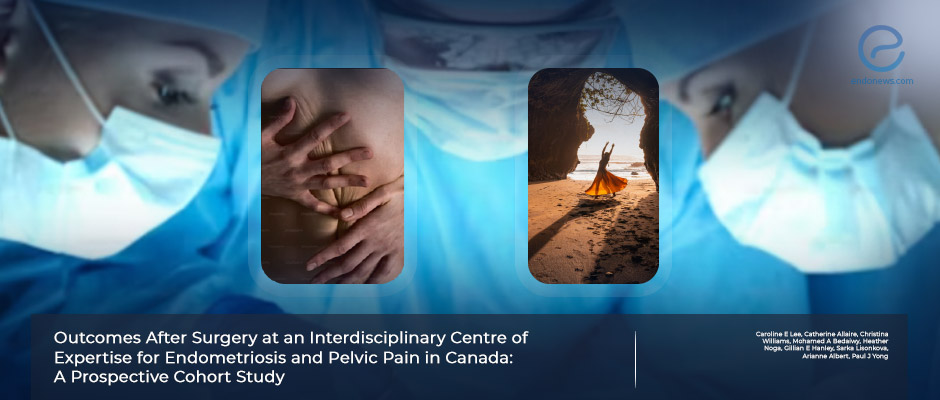Postoperative pain-related quality of life for patiens with different types of endometriosis surgery.
Apr 19, 2024
Postoperative pain improvement occurs regardless of the type of surgery, study found.
Key Points
Importance:
- The response to endometriosis surgery depends on many factors including the patient's age, time and type of surgery, presence of comorbid pains, use of hormones, and the type of endometriosis.
Highlights:
- Patient selection for conservative surgery in a highly skilled center of endometriosis provides almost similar improved surgical outcomes and pain-related quality of life when compared to hysterectomy.
What's done here:
- An author team from the British Columbia Women's Center in Canada aimed to examine pain-related quality of life and surgery outcomes, comparing conservative surgeries to hysterectomies for endometriosis.
- The patient data was collected from an outgoing prospective registry for endometriosis with pelvic pain of online Research Electronic Data.
- The miscellaneous pelvic and organ pains secondary to surgery and the impact of endometriosis-associated pain on quality of life were evaluated by the EHP-30 questionnaire and other 11-point numerical ratings.
Key Results:
- Out of 595 patients who met the inclusion criteria, approximately one-fourth underwent a hysterectomy, and the rest had conservative surgery.
- The majority of the women had previous surgeries before referring to the tertiary center.
- Pain-related quality-of-life improvement was seen for both conservative surgery and hysterectomy groups, but the improvement seen with the hysterectomy group was higher.
- The improvement in both conservative surgery and hysterectomy groups was regardless of the patient's age and the stage of endometriosis.
- In both surgery groups, significant improvements over time were observed for the severity of chronic pelvic pain, deep and superficial dyspareunia, and dyschezia.
Lay Summary
Endometriosis surgery usually improves chronic pelvic pain and the quality of life in women suffering from that disease. Response to surgery depends on several factors, however, in younger ages, recurrence of both pain and endometriosis lesions are reported. Most research on the outcomes of surgeries was conducted in retrospective studies. There is a lack of prospective study design to evaluate the surgical outcomes in the literature.
Lee et al. from the Department of Obstetrics and Gynecology of British Columbia Women's Center for Endometriosis and Pelvic Pain, Canada, set up a prospective cohort study for follow-up of the results of endometriosis surgery between December 2013 and July 2016. The patients were operated on in these tertiary referral centers through either conservative methods or hysterectomy. The authors compared the type of surgery, stage of endometriosis, and ages of the patients and used mixed effective models to evaluate the pain during follow-up postoperatively. The impact of pain on quality of life was the primary surgical outcome validated by the Endometriosis Health Profile (EHP30) questionnaires. Their second surgical outcome was to measure miscellaneous pain symptoms after surgery, with an 11-point numerical rating.
Women in both surgery groups were divided into two groups: under and over 40 years of age and endometriosis stages I-II or III, IV. The results were statistically evaluated, comparing those groups in every surgery group and every surgical outcome. The improvement in pain-related quality was more significant in the hysterectomy group. Each surgery group was evaluated separately, the age and stage-divided groups showed similar surgical outcomes.
The authors call attention to the non-randomized nature of their research and discuss the prevention of evaluating the impact of co-treatments and adjuvants.
For future studies, a need to develop a clinical prediction model that could predict whose quality of life is more likely to improve postoperatively was underlined. This research was recently published in the Journal of Obstetrics and Gynaecology Canada.
Research Source: https://pubmed.ncbi.nlm.nih.gov/38442956/
quality of life pelvic pain bowel resection ureter reimplantation hysterectomy conservative surgery surgical outcomes endometriosis.

